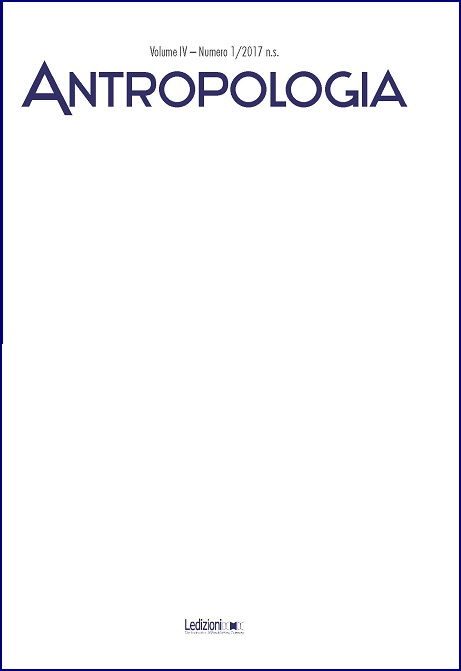"No al carbone." Pollution, health and cultural heritage in southern Puglia
DOI:
https://doi.org/10.14672/ada20171185%25pKeywords:
Pollution, Health, Heritage, Activism, PoliticsAbstract
The interplay between environmental changes, right to health and social struggles is the topic of the article, which is based on an ethnography of theenvironmental justice movement No al carbone active in Brindisi a city with high industrial density and with important environmental and health criticality. Anthropological research on this issue has shown how the relationship between contamination processes, environmental protection and the right to health is inscribed inside simultaneously scientific, political and legal fields which are crossed by social and political tensions between public institutions, companies and environmental justice movements. It is conflicting laboratories where the stakes are a kind of new biological citizenship that on one side defines the opposition to industrial presence, on the other indicates new possibilities for sustainable development conveyed by complex identity processes that affect the ways of local cultural and natural heritage organization. Since 2009 against the invasive industrial presence No al carbone promotes a protest by street demonstrations, relations with other movements, internal divisions, lawsuits, popular epidemiology, remediation of contaminated sites. From a long-term ethnography, the article will focus on the actions of the activists, trying to reflect on the links between scientific knowledge, cultural heritages and political actions.
Downloads
Published
Issue
Section
License
Authors maintain the copyright of their original work and grant the Journal the right to first publication, licensed after 36 months under a Creative Commons Licence – Attribution, which allows others to share the work by indicating the authorship and first publication in this journal.
Authors may agree to other non-exclusive licence agreements for the distribution of versions of their published work (for example in institutional archives or monographs) under the condition that they indicate that their work was first published in this journal.



